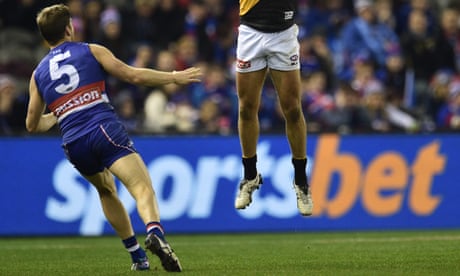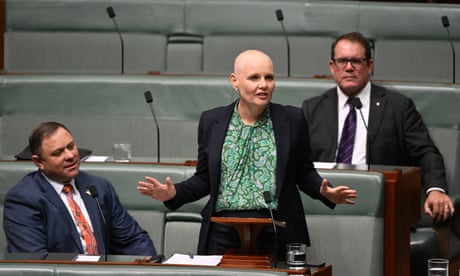ABC News Homepage
In the game of thrones currently unfolding at the Kremlin, one man has clung firmly to his seat.
Sergei Shoigu, Vladimir Putin's longtime defence minister and close confidant, has so far held onto his position and survived an all-out mutiny staged by one of his most powerful opponents.
When Yevgeny Prigozhin commanded his Wagner mercenaries to march on Moscow over the weekend, he singled out Shoigu as the "scumbag" ultimately responsible for Russia's failures on the battlefield in Ukraine.
Demanding that Shoigu and his top commander stand down, Prigozhin's troops waltzed across the border into Rostov-on-Don on Saturday morning, taking control of the city.
"We have arrived here, we want to receive the chief of the general staff and Shoigu," Prigozhin said in a video from Russia's Southern Military District HQ.
"Unless they come, we'll be here, we'll blockade the city of Rostov and head for Moscow."
Shoigu went to ground, while Putin stood by him, delivering a stinging rebuke of Prigozhin's "betrayal", indirectly accusing the Wagner head of treason.
"Those who organised and prepared the military mutiny, who turned weapons against their comrades-in-arms, have betrayed Russia, and will be held accountable for that. And those who are being pulled into the crime, I'm calling on you to not make this crucial, tragic, unrepeatable mistake," he said.
But by late Saturday evening, it was all over.
Prigozhin is now in exile, under the watchful eye of another Putin ally, Belarusian President Alexander Lukashenko.
And while the Wagner boss has since declared he acted to protect the president and hold Shoigu to account, his nemesis remains at the top of the negotiation table — for now.
How a Kremlin outsider became Putin's best friend
In Russia, they call it the "siloviki", which roughly translates to "people of force" or "the strongmen".
The small elite circle that makes up Putin's siloviki all hail from similar backgrounds.
Like Putin himself, most are ethnic Slavs who rose through the ranks of power in his hometown of St Petersburg.
But Shoigu was born in a small village near the Russian-Mongolian border to a Ukrainian mother.
His father was part of the Tuva community, an ethnic group indigenous to Siberia.
Right before the Soviet Union collapsed, the ambitious young engineer moved to Moscow where he got a job on the government architecture committee and became friends with Boris Yeltsin.
When the USSR toppled and Yeltsin rose to power as Russia's president, Shoigu's future among the Russian elite looked assured.
"There's no one else like him in the ruling class," Evgeny Minchenko, an analyst who studies the Russian elite, told The Economist in 2015.
"It's an absolutely unprecedented story."
Once ensconced in Yeltsin's cabinet, Shoigu gave himself the title of minister of emergency situations.
He quickly built a public profile by donning military fatigues and choppering into disaster zones — always with a camera crew in tow.
When Yeltsin retired in 1999 and made way for Putin, the mysterious KGB agent reportedly looked to Shoigu for inspiration in building his image.
Shoigu, who goes fishing bare-chested, forages for mushrooms, plays ice hockey and rides horses, was exactly the hyper-masculine, outdoorsy leader Putin wanted to be.
Knowing that "one log can't support two bears", Shoigu ceded the spotlight to his new boss and set about becoming his friend and ally instead, according to Gleb Pavlovsky, a former Kremlin adviser.
Shoigu gave Putin a black Labrador called Koni, and the Russian strongman promptly fell in love.
"As far as bad moods go, of course I have them like any other person, but in those cases I try to consult with my dog Koni — she gives me good advice," he said.
In 2012, Shoigu's unshakeable loyalty was rewarded: He was made the minister of defence.
While the appointment raised some eyebrows as Shoigu had never served a day in uniform, experts say his considerable political skills were useful in the byzantine defence apparatus of the Russian state.
"Shoigu has made considerable headway in restoring trust between senior officers and the Defense Ministry," an analyst for the Center for Strategic and International Studies (CSIS) wrote in 2014.
As a member of Putin's siloviki, Shoigu enjoys the finer things.
Jailed opposition leader Alexei Navalny claims he owns a $27 million mansion outside Moscow.
He also reportedly collects rare oriental swords and Aztec sacrificial daggers. Despite never seeing combat, his military uniform is adorned with medals — many invented specifically for him.
When his boss decided to fulfil a lifelong dream and try to claim Ukraine as his own in early 2022, Shoigu was, as always, right there to support him.
But the war tested their power and their relationship in ways neither man could have predicted.
Shoigu began Ukraine a top dog, but the war has not gone his way
Since Putin launched the full-scale invasion of Ukraine early last year, Shoigu has been a central figure in the military campaign, overseeing Russia's 830,000 active troops.
As one of Putin's closest confidants, he was said to have been among the few Kremlin insiders who were not taken aback by the leader's plan to send troops over the border.
"After Putin announced his decision … the chief of foreign intelligence struggled for words, and the FSB director and the foreign minister acted as if they were automatons following commands," investigative journalists Andrew Soldatov and Irina Borogan wrote in February 2022.
"By contrast, Shoigu, having spent much of the past decade building up the military into a powerful political force, sounded confident and ready to lead Russia headlong into battle."
But cracks in the relationship began to appear early in the war, with the defence minister mysteriously going missing for weeks at a time, sparking rumours of his capture, sacking, or death by poison.
As it became clear that Shoigu would not be able to deliver Putin the quick victory the leader had hoped for, observers predicted his days were numbered.
"There are reports that Putin is very disappointed in how Shoigu prepared for this war, how he carried it out," Russian political analyst Tatiana Stanovaya told the Washington Post in May last year.
According to analysis by CSIS in February this year, Russian forces sustained more combat fatalities in a year in Ukraine than in all of its wars since World War II combined, including a decade in Afghanistan and two campaigns in Chechnya.
Among Shoigu's biggest critics has been Yevgeny Prigozhin, who joined Chechen warlord Ramzan Kadyrov in staunch criticisms over Russia's defeat in Lyman last October.
After Kadyrov accused military leaders of nepotism and covering for "incompetent" generals, Prigozhin chimed in that the top brass should be "sent barefoot to the front with machine guns".
As Prigozhin's mercenaries swung into action in Ukraine, he ramped up criticisms of the Russian military, accusing Shoigu and his chief of general staff Valery Gerasimov of fumbling the war effort and starving Wagner troops of supplies.
In February this year he claimed they were making orders "left and right" to prevent ammunition and air transport from reaching Wagner units in an apparent effort to "destroy" the private military company (PMC).
By May, Russia's campaign was bedevilled by logistical setbacks, prompting Shoigu to order the state-owned Tactical Missiles Corporation to double its production of high-precision weapons "in the shortest possible time".
In one of his trademark rants, Prigozhin filmed himself standing next to the bodies of fallen Wagner fighters, aiming his ire directly at Shoigu and his chief.
"Shoigu! Gerasimov! Where are the f***ing shells?" he demanded, blaming the "stupid" commanders for failures on the front line.
Then came the final straw.
On June 10, Shoigu issued an order requiring all Russian volunteer fighters in Ukraine to sign contracts with the Ministry of Defence by the end of the month.
Prigozhin's response was swift.
"Wagner will not sign any contracts with Shoigu," he said, adding that his group would be compromised by coordinating with a man who "cannot properly manage military functions".
Two weeks later, his mercenaries marched toward Moscow.
Did Prigozhin try to blackmail Putin into dumping Shoigu?
While tensions have boiled over in the past 12 months, the rivalry between Prigozhin and Shoigu is said to go back at least five years.
Shoigu's own private military company, established in 2018 and known as the Patriot PMC, has been spotted in Syria, Africa and Ukraine, and is described by US officials as a direct competitor of Prigozhin's Wagner group.
There appear to be personal elements to the feud as well — Prigozhin has also taken aim at Shoigu's family members for allegedly dodging military conscription and living in luxury while ordinary Russians suffer.
But analysts say it's most likely Prigozhin was either attempting to wrestle more power or trying to offer Putin a way out.
"He was potentially floating a balloon for Putin to grab in case he wanted to wind down this war or blame someone for its failures," said Dmitri Alperovitch, founder of the Washington-based think tank Silverado Policy Accelerator, on his podcast Geopolitics Decanted.
"He could basically grab onto this and say, 'See, it wasn't me who launched this war, it was Gerasimov and Shoigu who misled me and created this false pretence.' But of course Putin didn't bite."
If it was an attempt to pressure Putin into dumping his defence minister, it backfired.
Days after the mutiny ended, Shoigu was back in the spotlight with photos and video showing him purportedly going about his business at a busy command post, and seated at the negotiation table as Putin went into damage control.
Without naming Prigozhin, the Russian president put the Wagner chief on blast as a corrupt liar who inflated his company's independence, publicly claiming for the first time that the Kremlin "fully funds" the PMC.
"Prigozhin had built his personal brand on criticising the Russian military command and bureaucrats for corruption and ties to Western countries, and Putin is likely attempting to shatter Prigozhin's populist appeal by accusing him of the same sins," the Institute for the Study of War (ISW) concluded.
While he has not fared as poorly as Prigozhin, Shoigu's reputation has been damaged.
"The big winner of the night was Lukashenko. The big loser was Shoigu," Arnaud Dubien, director of the Franco-Russian Observatory think tank, told The Moscow Times.
Could Sergei Shoigu be replaced?
For now, Vladimir Putin remains focused on restoring the image of his chaotic inner circle to one where he holds the ultimate power.
Pro-war Russians on Telegram, many of whom are supportive of the Wagner group, spent the week speculating about who could replace the defence minister and his top general.
Putin's former bodyguard Alexy Dyumin was touted in Shoigu's place, as a competent governor of the defence-heavy Tula region and reportedly a key negotiator who helped Lukashenko bring Prigozhin's mutiny to an end.
There have also been questions raised about the fate of deputy commander Sergei Surovikin, who has been absent from public since the mutiny, and is reported to have been interviewed by Kremlin officials.
But at this point, any moves to replace Shoigu or Gerasimov would likely be seen as capitulating to Prigozhin's demands.
"At least immediately we're unlikely to see a personnel change there just because that would look like yet another level of weakness," CSIS associate fellow Catrina Doxsee told the Russian Roulette podcast.
"In the longer term … I could see Putin using [battlefield] failures or setbacks as an excuse to then change out leadership … But I don't think he can possibly do it when it looks like it was based on Prigozhin's demands."
Many have observed that Vladimir Putin values loyalty above almost all else — and this may ultimately be what saves his closest friend.
"Kremlin officials confirmed that Putin has been increasingly preferring loyalty over competence within his inner circle, and Putin may have perceived Prigozhin's critiques a form of disloyalty," the ISW wrote in March, following a tirade from Putin's chef over the Battle of Bakhmut.
"Prigozhin likely did not intend to challenge Putin directly, but Putin likely saw Prigozhin's aggressive self-promotion at the expense of others who had Putin's trust as a threat.
"Shoigu and Gerasimov, after all, have been loyal to Putin and his regime structure for years and likely erred by excessive loyalty — failing to tell Putin what Putin did not want to hear — a trait Putin seems willing to forgive."
With Wagner forces no longer allowed to fight in Ukraine, Shoigu may look to demonstrate the strength of his allegiance to Putin on the battlefield, through his Patriot fighters.
According to an investigation by open-source intelligence outlet Strike Source, Patriot fighters have adopted a symbolic mascot perhaps demonstrating Shoigu's idea of loyalty.
"There are a few images that show Patriot fighters in action. However, one of their identification signs has been shared on social media — a patch with a dog head in a spiked collar," Anna Varfolomeeva and Justen Charters wrote in April.
It bears a striking resemblance to the insignia of the Oprichniki — Ivan the Terrible's personal bodyguards, who unleashed brutal violence in their bid to protect the tsar and carried severed dog's heads tied to their saddles.
"Dogs are known for their fierce loyalty and protection of their owners, and the Oprichniki adopted this symbolism as a way to demonstrate their unwavering commitment to the tsar," Varfolomeeva and Charters wrote.
"It represented the brutal force and aggression that [they] were willing to employ to maintain their power."
Shoigu's fighters wear the image of a dog as a symbol of commitment to their leader and the alliances he holds.
It may not matter that Shoigu has failed to deliver Putin a swift victory because their relationship was never based on him being good at his job.
Shoigu gave Putin the ultimate lesson in loyalty when he gifted him a dog all those years ago.
Now, he's betting the Russian president will remember that in one of his most challenging moments.



